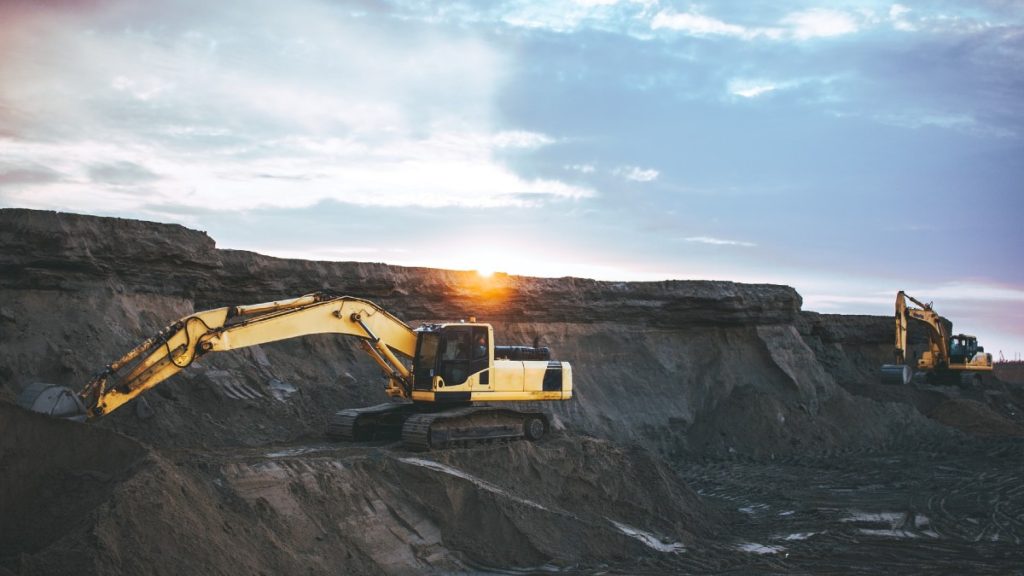The government is asking coal mines to stay open to build energy security. Will this impact on net zero progress, or ultimately accelerate the transition to clean energy?
Today the world and the UK are in energy flux as never before. UK policy makers are looking to fossil fuels and the North Sea resource to bridge the gap.
In the short term, this flies against the UK’s net zero promises and makes a mockery of COP26’s agenda. However, many big thinkers including the International Energy Agency (IEA) see massive opportunities to hasten the green agenda via this energy crisis.
In one example of worrying fossil reawakening, EDF has been asked to consider extending its West Burton coal-fired power plant. Half of West Burton A was available over the recent winter to supply electricity during peak times, while the other half commenced decommissioning in summer 2021.
In another, the UK Energy Security Strategy, says The Guardian, allows for more drilling for oil and gas in the North Sea in defiance of its own net zero targets, while neglecting alternative measures that experts say would provide much quicker relief from high energy bills and reduce greenhouse gas emissions instead of raising them.
The Strategy acknowledges the need to move away from fossil fuels, but still allows for licences to explore new oil and gas fields to be expedited and more production from existing North Sea fields; a contradiction.
You’d think it spells disaster; plus in the latest salvo European Commission President Ursula von der Leyen unveiled a complete EU ban on Russian oil by the end of this year, yet heightening the pressure on energy and geopolitics. But some analysts believe it could all end positively for net zero.
Playing the longer game
Energy and climate change run on a strange mix of policy, business consent, public awareness and cost, both capital and environmental. But global events can outstrip these. Covid proved how the norms can be torn up.
Some thinkers believe the same might happen with net zero, climate change and the energy crisis. The IEA in particular thinks we can use this crisis to highlight why energy has gone so wrong and strategically realign it.
“We are living through extremely difficult times. Russia’s invasion of Ukraine has shaken the global energy system and is fuelling a damaging and unnecessary cost-of-living crisis that is being felt most painfully by those who can afford it least, especially in developing economies,” said Fatih Birol, Executive Director of the IEA, announcing its new plan to phase out coal entirely, in line with net zero.
“At the same time, we cannot lose sight of the climate crisis that, left unchecked, will bring even greater disruption and suffering. This is why our new report is critical: to provide practical steps to put coal emissions into decline towards net zero in a way that is fair for emerging and developing economies, and ensures secure and affordable energy for everyone.”
“We need to move the world beyond coal-fired power plants as fast as possible, which requires ending the subsidies that prop them up and turbocharging the deployment of clean energy,” said Michael R. Bloomberg, UN Special Envoy for Climate Ambition and Solutions, who is leading the work.
“I look forward to working with the International Energy Agency to accelerate the reduction of harmful emissions, and to do it in ways that will strengthen economic growth and energy security.”
A mix of hope and fear
Of course, achieving the IEA’s aims won’t come cheap. ‘Barely a week goes by without a new report on the price the world will have to pay if it does not cut emissions rapidly,’ writes The World Economic Forum.
When it comes to Europe, the cost of switching to clean energy by 2050 will be $5.3 trillion, according to a new report from low-carbon research specialist BloombergNEF (BNEF). Its European Energy Transition Outlook 2022, yet another paper trying to model the future at a time of crisis, provides two clean energy pathways out of Europe’s current energy woes.
For others, going clean is as much about stability as environment. “We have seen this scenario time and time again, where oil is proving to be an unstable factor in our economy,” said Mark Brownstein at the Environmental Defense Fund. “And now we have the opportunity to move to a different future.”
From The World Wildlife Fund (WWF) perspective, several studies are showing that countries can become independent of Russian gas without building new energy infrastructure. This can be done through increasing renewable energy, and implementing ambitious energy efficiency and conservation measures.
‘In terms of speed, energy efficiency cannot be beaten,’ writes Richard Scotney, WWF Global Energy Efficiency Lead.
‘New oil and gas will take 30 years to bring online, by which time the world should not be investing in new fossil fuels anyway. Nuclear and hydropower typically require over 20 years to establish. Solar is quick, but still can take at least two years to establish. But energy efficiency can start immediately, increasing energy security, cutting bills, and saving energy.’
The final word
Any concrete prediction on net zero and the energy crisis is of course impossible. But the sense appears to be one of opportunity.
Oil and gas reliance, both environmentally and economically, isn’t what politicians want any more. Putin has toxified these assets in a way green campaigners couldn’t for years.
Will the legacy of this be a faster green transition? One hopes so, and with it, economic stability.

